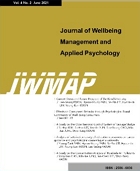- Log In/Sign Up
- E-ISSN2586-6036
- KCI
 E-ISSN : 2586-6036
E-ISSN : 2586-6036
Abstract
Purpose: his study aims to explore how healthcare provider service characteristics in telemedicine services, which have become more common since the pandemic, affect rapport formation and service satisfaction with healthcare providers. Research design, data and methodology: A group of actual telemedicine users underwent data collection and empirical analysis. After analyzing reliability and validity, hypotheses were tested using a structural equation model. Results: Key perceived attributes of healthcare providers in telemedicine services were identified as doctor effort, doctor listening, and doctor expertise. Each of these variables had a significant positive impact on trust in telemedicine. Moreover, these attributes significantly positively impacted rapport formation and user service satisfaction, which was mediated by trust. However, the direct impact of rapport formation on service satisfaction was not supported. Conclusions: The study's findings have academic and practical implications for expanding telemedicine services. As an initial empirical study on telemedicine services, it confirms the importance of trust and rapport formation even in non-face-to-face medical situations. In order to overcome the limitations of non-physical contact, telemedicine services should strive to develop UI/UX designs that are more interoperable and boost trust in service apps.
- keywords
- Telemedicine, Trust, Service satisfaction, Medical service
- Downloaded
- Viewed
- 0KCI Citations
- 0WOS Citations














